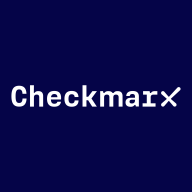

Checkmarx One and SonarQube Cloud both compete in the software security and code quality management space. Checkmarx One holds the upper hand due to its extensive integrations and language support, whereas SonarQube Cloud is appreciated for ease of use and cost-effectiveness in cloud-native environments.
Features: Checkmarx One provides comprehensive features, including vulnerability detection without code compilation, integration with major repositories, support for major programming languages, and effective static and dynamic code analysis. SonarQube Cloud focuses on code quality and security vulnerabilities, integrating with CI/CD tools and offering code smells and security hotspot detection.
Room for Improvement: Checkmarx One needs to improve role management and support for additional languages like Swift and COBOL while enhancing Windows OS support. SonarQube Cloud should optimize false positive handling, improve configuration processes, and enhance dynamic code scanning.
Ease of Deployment and Customer Service: Checkmarx One can be deployed on-premises, hybrid, or in public clouds, offering flexibility with noteworthy technical support that requires better response times. SonarQube Cloud is primarily cloud-based, ensuring easy deployment with slightly better customer service ratings in cloud-native settings.
Pricing and ROI: Checkmarx One's pricing, influenced by user numbers and language coverage, is seen as costly but provides good ROI through early vulnerability detection. SonarQube Cloud, with line-based pricing, is considered more budget-friendly for smaller enterprises, offering competitive pricing and good value.
It is easily integrable with the CI/CD pipeline and supports multiple projects with its extensive plugin options.
The product is designed for bigger clients, while smaller companies are often put aside.
Integrating it into different solutions is straightforward.
The customer service and support for SonarQube Cloud are responsive and helpful.
Some of my teammates have interacted with support by raising tickets, and their issues were successfully resolved.
There are limitations, and it seems to have fewer capabilities than Veracode.
It has been used in multiple projects and performs well.
SonarQube Cloud is a scalable product, and I rate its scalability at seven out of ten.
I would rate the stability of this solution a nine on a scale of 1 to 10 where one is low stability and 10 is high.
From my team's feedback, it is almost an eight out of ten.
It is a quite stable solution.
It could suggest how the code base is written and automatically populate the source code with three different solution options to choose from.
I need a solution that can bring together three key areas: vulnerabilities, static scanning, and misarchitecture.
I would like to see SonarQube Cloud provide more detailed solutions for fixing code issues, especially solutions related to CVEs.
Static code analysis is good, but the product lacks dynamic code scanning capabilities, an area where Veracode excels.
SonarQube Cloud is roughly equivalent in cost to Veracode, maybe a little cheaper.
From my experience, SonarQube Cloud (formerly SonarCloud) is very expensive for small companies.
We used the open-source version of SonarQube Cloud for its minimum features and did not license its extensive capabilities.
My experience with the initial setup of Checkmarx One is straightforward; it is not complex compared to other tools that I have tried.
I find SonarQube Cloud very easy to use and simple to integrate initially.
It suggests fixes where needed, enabling the team to code better and maintain high code quality.
The most valuable features of SonarQube Cloud (formerly SonarCloud) include code inspection, addressing technical debt, and identifying security vulnerabilities.
| Product | Market Share (%) |
|---|---|
| Checkmarx One | 10.0% |
| SonarQube Cloud (formerly SonarCloud) | 4.2% |
| Other | 85.8% |


| Company Size | Count |
|---|---|
| Small Business | 30 |
| Midsize Enterprise | 9 |
| Large Enterprise | 38 |
| Company Size | Count |
|---|---|
| Small Business | 9 |
| Midsize Enterprise | 3 |
| Large Enterprise | 4 |
Checkmarx One is an enterprise cloud-native application security platform focused on providing cross-tool, correlated results to help AppSec and developer teams prioritize where to focus time and resources.
Checkmarx One offers comprehensive application scanning across the SDLC:
Checkmarx One provides everything you need to secure application development from the first line of code through deployment and runtime in the cloud. With an ever-evolving set of AppSec engines, correlation and prioritization features, and AI capabilities, Checkmarx One helps consolidate expanding lists of AppSec tools and make better sense of results. Its capabilities are designed to provide an improved developer experience to build trust with development teams and ensure the success of your AppSec program investment.
SonarQube Cloud offers static code analysis and application security testing, seamlessly integrating into CI/CD pipelines. It's a vital tool for identifying vulnerabilities and ensuring code quality before deployment.
SonarQube Cloud is widely used for its ability to integrate with tools like GitHub, Jenkins, and Bitbucket, providing critical feedback at the pull request level. It's designed to help organizations maintain clean code by acting as a quality gate. This service supports development methodologies including sprints and Kanban for ongoing vulnerability management. While appreciated for its dashboard and integration capabilities, some users find initial setup challenging and note the need for enhanced documentation. The recent addition of mono reports and microservices support offers deeper insights into security and code quality, though container testing limitations and false positives are noted drawbacks. Manual intervention is sometimes required to address detailed reporting, with external tools being necessary for comprehensive analysis. Notifications for larger teams during serious issues and streamlined integration of new features are also areas of improvement.
What are the key features of SonarQube Cloud?In specific industries, SonarQube Cloud finds application in finance and healthcare where code integrity and security are paramount. It allows teams to identify critical vulnerabilities early and ensures that software development aligns with industry regulations and standards. By continuously analyzing code, it aids organizations in deploying secure and reliable applications, fostering trust and compliance.
We monitor all Static Application Security Testing (SAST) reviews to prevent fraudulent reviews and keep review quality high. We do not post reviews by company employees or direct competitors. We validate each review for authenticity via cross-reference with LinkedIn, and personal follow-up with the reviewer when necessary.